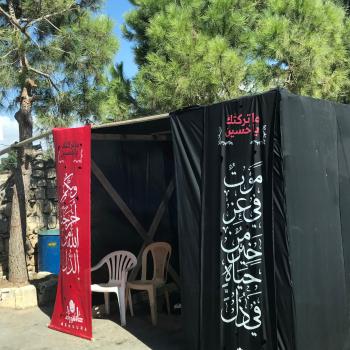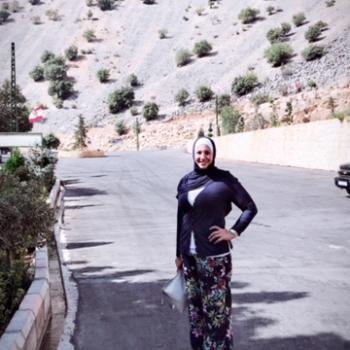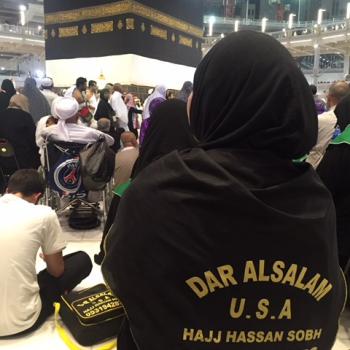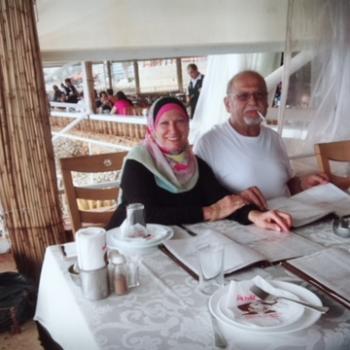What does “HijabiHandshaker” mean?
Often, I am asked, “As a woman in hijab, why do you shake hands with people? They are not your mahram and it is forbidden for us to touch members of the opposite sex.” Coming from my Muslim sisters and brothers, this is a valid question. I appreciate individuals who ask with genuine interest and respect and refrain from their judgmental comments.
Let’s start with religion.
I practice Islam and in its core values it is impermissible for a male and female who are not blood related or mahram (a person you cannot marry) to one another, to touch. Within most schools of thought, scholars agree that handshaking between a man and woman is not permissible and should be avoided. As a woman in hijab, we are scrutinized the most, even though this applies to all Muslims.
Disclaimer: I am not a scholar and can only share what I know and have read and questioned scholars about.
Getting Goosebumps
The contact of skin between a male and female can initiate illicit feelings. People will say, “Oh, that is so ridiculous,” though think of the times you have brushed hands with a crush or someone you admire. That surge of emotion or “electricity” that races through you – that is desire and pleasure. Everyone has experienced situations when we get goose-bumps when touching someone we found attractive or brushed up against. Our faith, feelings and emotions play an integral role in our human contacts and interactions; so I remain cognizant of it, in its totality.
“Indeed those who have faith and do righteous deeds—the All-beneficent will endear them (to His creation).” Holy Quran, Chapter Maryam, 19:96
This is my space to be raw and real, right? There are people I associate with, professionally, whose hands I avoid shaking because I know that my attraction for them may impact that handshaking moment; when that happens, it becomes haraam (forbidden).
In general Islamic rulings, there should be no physical contact between opposite sexes. It does state that in certain situations, especially within non-Muslim countries and settings, it may be necessary to shake hands. According to multiple scholars, contact is considered permissible on conditions there is no desire for pleasure or sexual satisfaction to be derived from that handshake.
Come on, don’t blow out your breath in a huff! I am serious!
When Discomfort Takes Over
It CAN be sensual and inappropriate. There are many unfortunate people creeping about the world just waiting to touch others. #reality
At an event, I reconnected with a former Detroit official; a tall, overwhelmingly muscular man who held my hand with both of his during our handshake. I literally felt crippled; a prisoner in what many see as a seemingly insignificant greeting. He leaned in, too close for my comfort, encroaching on my personal space, overwhelming me with his presence, and held my hand for far, too long. I was speechless as he buzzed on about watching me on All-American Muslim and how lovely my hijab was. #JeepersCreepers
I mustered my courage, straightened up, and informed him that I was glad he enjoyed the show, explaining that I needed my hand back and asked that he step out of my personal space. A mutual non-Muslim friend, clueless of my distress, was mortified by my brave request. The #OverwhelmingHandshaker acknowledged my discomfort, apologized, stepped back, and released my hand.
Occurrences like these are a display of the improper feelings Islam speaks of when addressing contact between males and females who are not mahram to one another. Far too often women feel uncomfortable in these situations. #MeToo
These are awkward situations. We stand in place, unsure to respond to the extended hand, your mind racing, worrying about how to explain why you won’t complete the gesture. It is important we understand that only we are responsible for our actions and have to answer for them. No one is perfect and we make mistakes, far too often, though it is essential that we are conscious of our behaviors and seek forgiveness.
God knows your Niyyah (intentions); Cliche, but True
I work in international and diplomatic relations within the finance, banking and economic sector in the Middle East. I am paid to build, foster, enhance, and maintain working relationships with global communities. The majority of people I associate with are non-Muslim. Prior to moving to Beirut, Lebanon for this position, I worked with governmental agencies and non-profit organizations. My life is a whirlwind of events and global travel to connect with people, socialize, talk business and close deals. Often in the public eye, I meet with everyone, from grassroots communities and intellectuals to corporate conglomerates, and global, governmental officers. I often cannot avoid shaking hands or having physical contact with individuals.

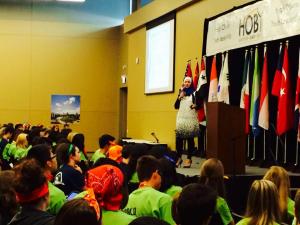
A Paid Social Butterfly
Friends avoid having to accompany me to events. My cousin, Jannine, a senior staffer for a Michigan congressional office always tells me, “I will meet you there. By the time I get there, you will have finished greeting and chatting with everyone and will find your seat.” *cue my eye-roll and her dismissive hand-wave* :o)
Though, it is true. I am a networking and social butterfly, which is what helped me to excel in my work. Being social and having a keen ability to communicate with people, familiar or unfamiliar, is what granted me the capacity to effectively and efficiently connect with those I met. Being genuine and sincere makes it easy to bond with your peers as many will immediately recognize your intentions and shared humanity. It is beautiful, though, along with that beautiful aspect of communication and connection comes internal conflict when in those professional settings as a person of strong conviction.
Shaking hands has always been something I struggled with. Preferably, I would rather not shake hands, though, professionally, it is not that easy, especially while traveling or conducting business. I go with my gut and trust my instincts. Within multicultural communities, many elected officials and active leadership are familiar with various religious and social customs. They are not offended as you place your hand over your heart, slighting bowing your head, giving the traditional Islamic greeting of Assalamo Alaikom (peace be upon you).
Just Do You
While at events, my desire is to get in, make as many meaningful connections as I can, and continue moving. I do not dwell on my handshaking and almost 99.9% of the time, it is quick and predictable; a greeting effort that has become monotonous. Though my discomfort overwhelms me at times, I simply go with my gut and avoid those who give me uneasy vibes. I do what makes me comfy.
God knows my heart and my love for Islam, aware of my efforts, niyyah (intentions) and desires. I am content in my relationship with my Creator. I am happy to facilitate a conversation on handshaking being impermissible, though, in the majority of occasions, I do not have 10-15 minutes to cogently explain why I will not shake hands. I feel it is important to ensure the individual does not take offence to the refusal and has a good understanding of the religious reasoning; simply refusing to shake hands without an explanation is inappropriate, to me.
You are a Representative of Islam
As a representative of my faith, and a visible Muslim, if I am going to refuse a handshake, prominent in many cultures and viewed as a sign of trust and connection, then I should be willing to explain it suitably. Being impolite is not in my nature and its imperative we educate non-Muslims with our words, as well as our actions.
I choose to focus on what I can when in a professional setting, to carry myself with honor, dignity and to treat others with respect, and I ask the Almighty, the most Merciful and Forgiving, to understand my intentions and accept my repentance.
“But there is no sin reckoned against you wherein you err as to this. Rather, [you are accountable] only for what your hearts premeditate. And ever is Allah all-forgiving, mercy-giving.” Holy Quran, Chapter Al-Ahzab, 33:5



